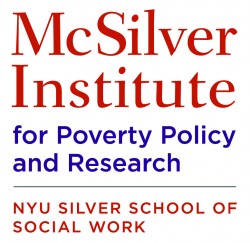In the Spotlight
Since October 1, 2013, over 10 million Americans have enrolled in either public or private health care coverage under the Affordable Care Act (ACA). Following the enrollment deadline that passed on March 31, the White House announced that 7.1 million people enrolled in private health care plans using the electronic insurance marketplace. In addition to enrollments in private healthcare coverage, at least 3 million Americans enrolled in Medicaid or in the Children’s Health Insurance Program. 
One thing can be ascertained by the earliest set of enrollment data, specifically for public coverage: millions of low income individuals and families will be accessing health care with coverage under the ACA, some for the first time.
Part of the ACA that has been cited as a key facet of the legislation is that it expanded Medicaid benefits to cover legal residents earning incomes less than 138 percent of the federal poverty level. Even though states could not be forced to expand their Medicaid programs based on the Supreme Court’s 2012 ruling that upheld key provisions of the law, 24 states and the District of Columbia have made millions of low-income adults eligible for coverage under the public healthcare program.
With millions of formerly uninsured Americans now gaining access to healthcare, the system is bound to undergo a number of transformations. In regards to Medicaid, the expansion of coverage to more low-income adults will introduce a number of people into the healthcare system who have been underserved or absent.
Direct Service Implications
While expansion and increased enrollment will open access to a number of healthcare services and professionals, covering more people will also contribute to an increase in potential access to mental health care. For states who chose to expand their Medicaid programs under the ACA, an increase in federal funds was provided to include an expansion of mental health care services.
For many in need, access to mental health care will become easier and more available. While many people are enrolling for the healthcare coverage, those seeking out services may be unaware of the kinds of services they may need, be eligible for, or now have access to.
To prepare for an influx in individuals who have now gained health coverage, mental health service providers must prepare to understand the implications of the ACA as well as ways to best serve individuals that may be unfamiliar with mental health care benefits. Organizations like the National Alliance on Mental Illness, Substance Abuse and Mental Health Services Administration, and the National Council for Behavioral Health provide resources for both consumers and providers to aid in understanding the healthcare law and its impact on mental health care. The Clinic Technical Assistance Center, a partner of the McSilver Institute, also provides clinical and business related resources to providers around the rapidly changing health care landscape under the ACA and Medicaid redesign.
Courtesy of McSilver Institute of Poverty Policy and Research who has kindly given SJS permission to syndicate this piece.
Disclaimer: The views and opinions expressed in the Policy News Briefs are not necessarily the views of the McSilver Institute for Poverty Policy and Research or NYU’s Silver School of Social Work. If you have comments or suggestions about this service, contact us at mcsilver@nyu.edu.
Sources:
Our authors want to hear from you! Click to leave a comment
Related Posts



